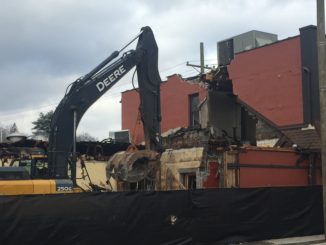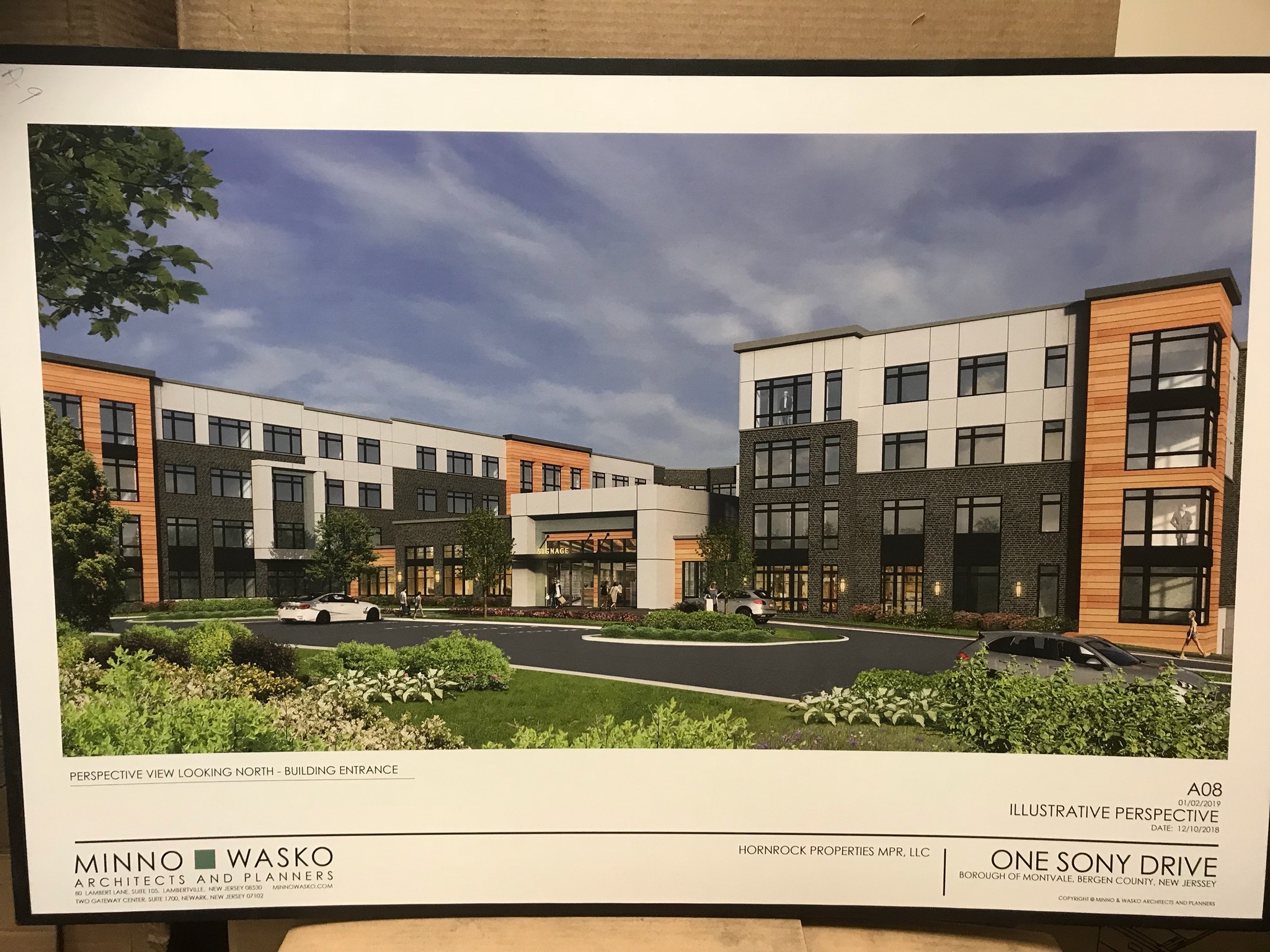
ENGLEWOOD CLIFFS, N.J.—A planner for Englewood Cliffs spent most of the borough’s first day on trial Oct. 11 chronicling how the town ended up without a single unit of affordable housing through three rounds of affordable housing, which included losing immunity for almost two years from “builder’s remedy” lawsuits over a decade ago.
At stake for Englewood Cliffs is a potential court decision mandating the borough allow for construction of hundreds of affordable housing units.
Borough’s ‘bad faith’
Currently, the borough is also without immunity from builder’s lawsuits, having been stripped of it in August following nearly four years of off-and-on negotiations over its affordable obligations by a Superior Court judge who cited the borough for acting in “bad faith” and being “constitutionally non-compliant” with its affordable housing obligation.
In its late August decision stripping Englewood Cliffs of immunity, the Superior Court found the borough’s plan calling for 77 affordable units (57 units in a 100 percent affordable complex, plus 20 credits) as not sufficient to satisfy its obligations, and cited the lack of inclusion of 800 Sylvan Avenue as a potential affordable housing site as a deficit.
Builder’s remedy: 600 units
While without immunity recently, Normandy Real Estate Partners (800 Sylvan Avenue LLP) filed a builder’s remedy suit to build 600 units of residential housing on 20 acres at 800 Sylvan Ave. About 100 affordable units are planned at the site.
Another court date for continuing cross-examination of borough planner Michael Mistretta was set for Oct. 18, with questioning from attorneys representing Fair Share Housing Center and Normandy Real Estate Partners.
Before a packed courtroom of Superior Court Judge Christine A. Farrington, Mistretta said that Englewood Cliffs actually lost its certification from the Council on Affordable Housing (COAH) in 2007 when it declined to adopt an affordable housing overlay ordinance on the former 27-acre Prentice-Hall property.
However, said Mistretta, no such “builder’s remedy” lawsuits resulted from the temporary loss of immunity from 2007 to 2009.
Generally, a developer can file a “builder’s remedy” lawsuit against a town if a town loses its immunity due to not having an approved affordable housing plan or if it is deemed to be out of compliance.
Currently, all affordable housing settlements are adjudicated by Superior Courts in New Jersey following dissolution of the Council on Affordable Housing in 2015 after nearly 16 years of inaction and legal stalemates over affordable housing formulas it proposed.
Mistretta said he helped draft the Housing Element and Fair Share Plan ordinance for the town. He said based on a COAH affordable housing formula for Round 2 (1987-1999) and Round 3 (1999-2025), Englewood Cliffs has a “fair share obligation” of housing units of 219 units in round 2 and 365 units in round 3.
Borough plan: 77 units
Mistretta detailed a borough vacant land analysis he helped prepare which indicated the “realistic development potential” of affordable housing to be 77 units, instead of nearly 600 units calculated over the last two rounds of affordable housing obligations.
In January, the council approved a plan that indicated future affordable units likely to be built on municipal property, including lots on Hudson Terrace.
At one point, Mistretta said it was “very relevant” that the borough has built no affordable housing units, which he claimed indicated the lack of land available noting factors such as property size and natural resources on properties, as valid reasons to exclude properties as eligible for future development and affordable housing.
He said the borough deems a minimum-size parcel of 0.83 acres needed for a multifamily building of five units. Under current court rulings, one affordable unit is generally set aside for every five units.
At least a half-dozen times during Mistretta’s testimony, Andy DelVecchio, attorney for Normandy Real Estate Partners, and Fair Share’s attorney Kevin Walsh, objected to admission of certain slide contents including quotations and data, as either “hearsay” or not admissible due to the author not being available for cross-examination.
Walsh concluded the day’s testimony with a cross-examination of Mistretta.
The trial continues as more witnesses will be presented and offer testimony and cross examination by attorneys over coming months.
‘Defy the law’
After the trial, Walsh said Englewood Cliffs’ officials “have tried to use every means at their disposal to exclude low-income households. Their goal has been apparent: to defy the law and to deny the constitutional rights of New Jersey’s working class.
“After 40-plus years, the time has finally come for Englewood Cliffs to meet its obligations,” he said in a statement.
Walsh said though over 300 towns across the state have resolved fair share housing obligations, Englewood Cliffs “has abused the process to delay compliance with our Constitution.”
He charged the borough has used its zoning powers to exclude working families.
Englewood Cliffs special counsel Albert Wunsch III, also town historian, said the borough will present an economic analyst to show the fiscal impacts of nearly 600 affordable units on a borough of about 8,500 residents.
The borough contends its plan, which provides opportunity for building only about 10 percent of 600 units, satisfies its affordable obligation.
‘Battle of experts’
“The thing is this case comes down to a battle of the experts and it comes down to ‘is our expert more believable than their expert’ and ‘is our expert able to grapple with what’s thrown at them during cross-examination?’” Wunsch said.
Wunsch said that Fair Share “wants to paint us as an exclusionary, racist town” but that instead the borough is “a multi-ethnic, diverse community…that prides itself on multiculturalism, but we’re being painted in a bad light by certain comments,” he added.
Wunsch said in the 1960s when there was racial disharmony in nearby Englewood, Englewood Cliffs never had any racial problems. He said a prospective buyer of any race could purchase a house in Englewood Cliffs—even during periods of racial unrest.
“The fact that there was racial harmony here demonstrates the goodness of this town,” he said.
Wunsch said during the 1950s, the borough also was one of few towns that provided housing for African American musicians who played at a local facility.
A spokesman for Fair Share Housing Center said the advocacy group, which represents low-income residents in affordable litigation statewide, is prepared to show that the municipality refused to fulfill its affordable obligations on purpose.
“We’re prepared to show at trial that the municipality was granting approvals for all kinds of development and not mandating any affordable housing units,” said Anthony Campisi, a Fair Share spokesperson.
“The town had an obligation to make sure that zoning was in place to build affordable units. We’re prepared to show that there had been a pattern of these types of situations,” he said.
Judge Farrington will likely decide at the trial’s conclusion on the number of units to be built in the borough and potential areas that can be zoned for future affordable units.
Englewood Cliffs is only the third town to lose immunity to builder’s remedy suits since the New Jersey Supreme Court ordered Superior Courts to resolve local affordable housing obligations, according to a Fair Share spokesperson.



